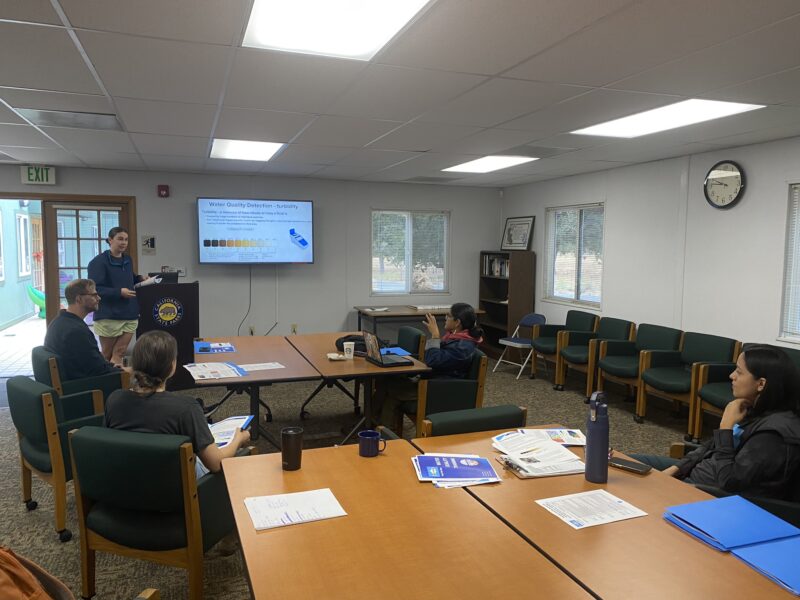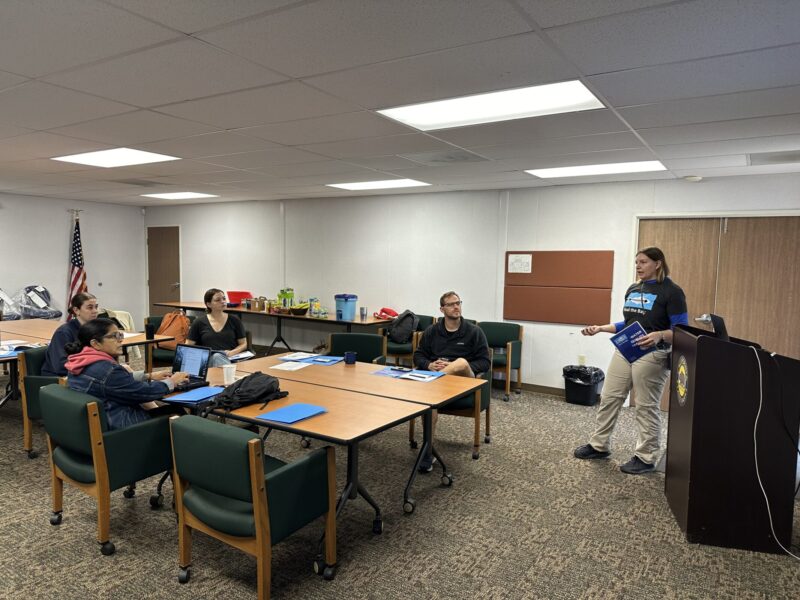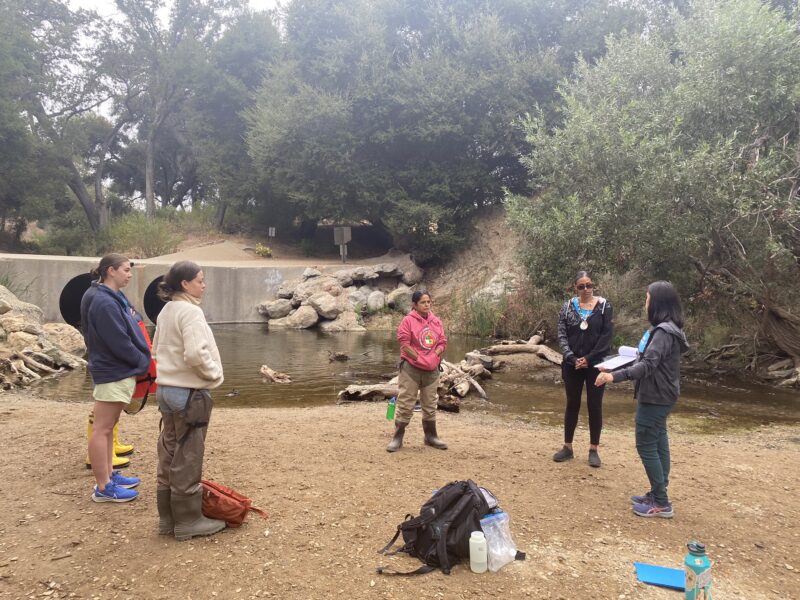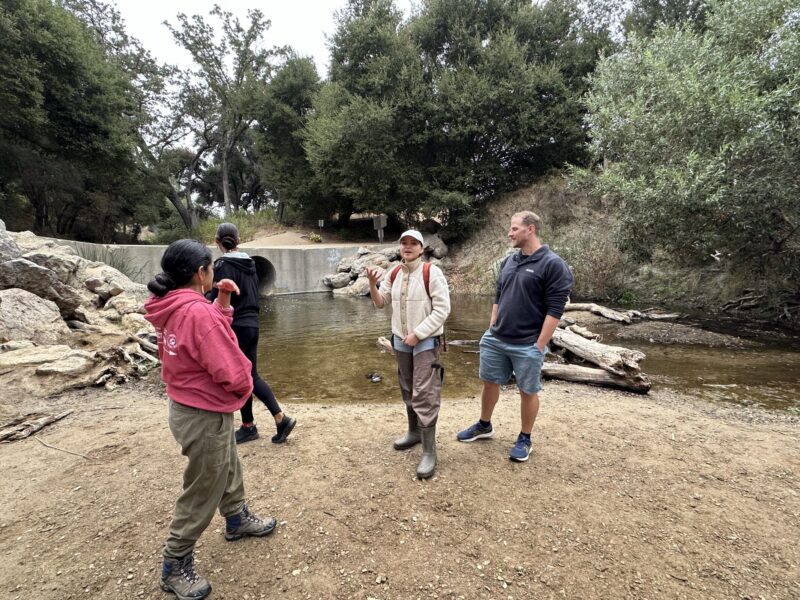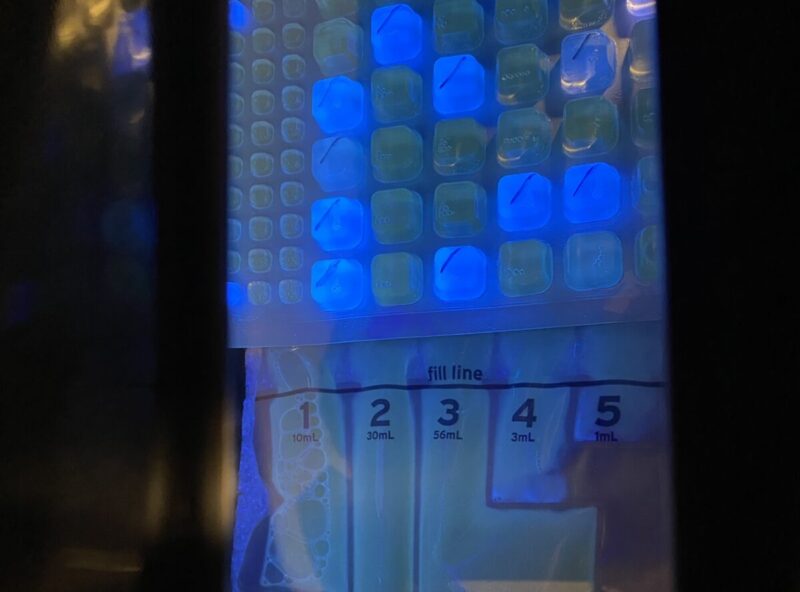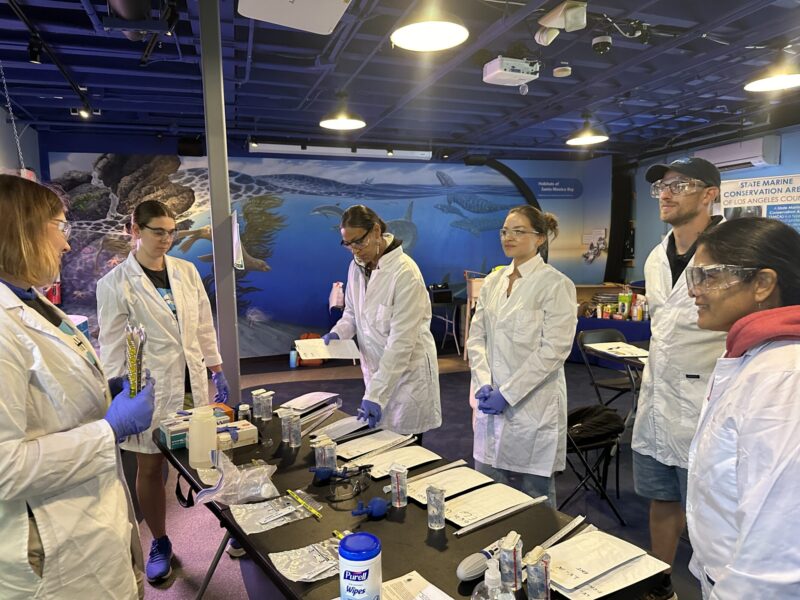Listening to the Land: Water Quality Training with Sacred Places Institute
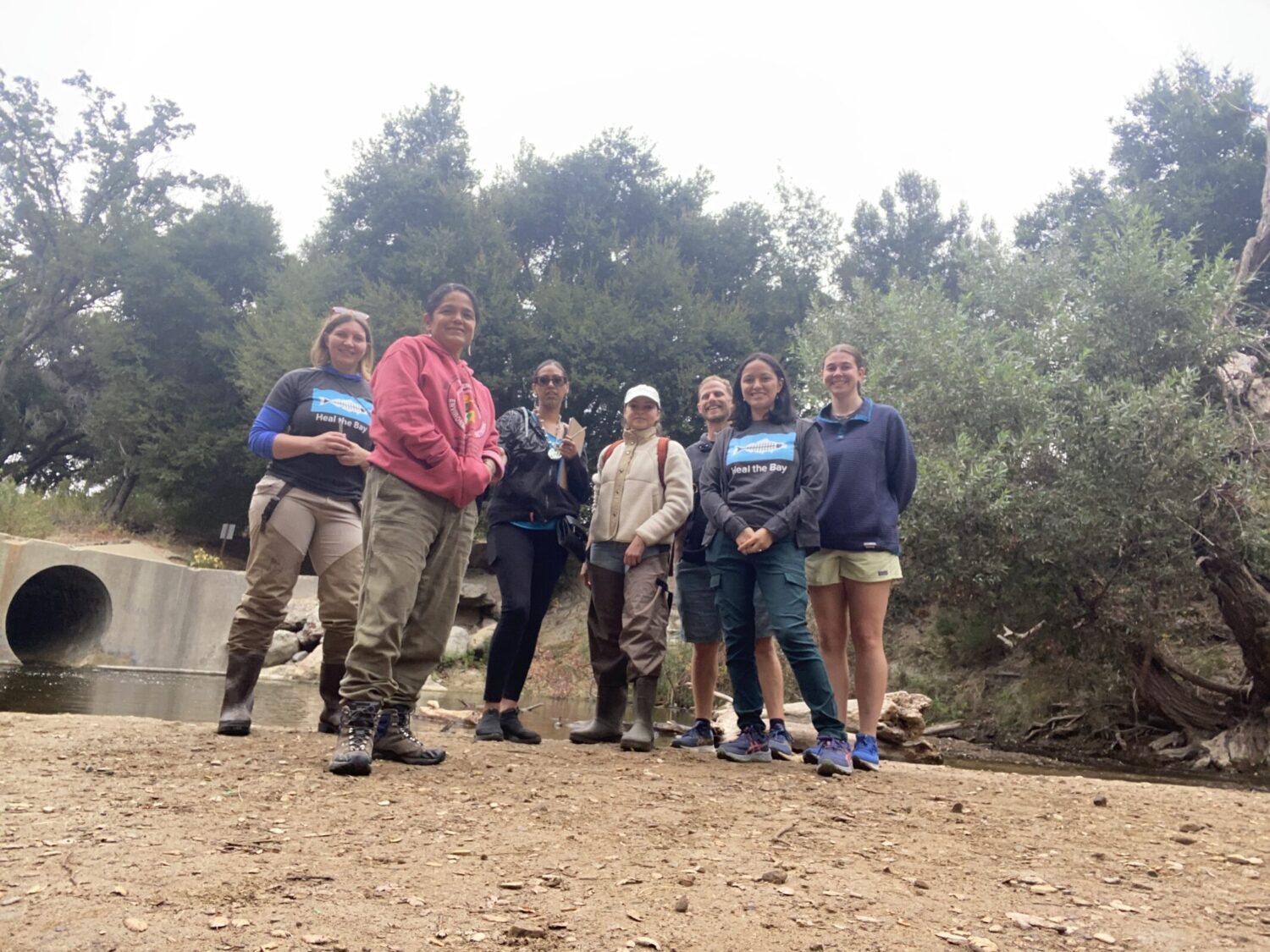
From the desk of the Heal the Bay Water Quality Team.
Heal the Bay recently hosted the Sacred Places Institute for Indigenous Peoples for a day of hands-on water quality testing and training to share our knowledge on the contaminants in LA’s freshwater, test for pollutants, and assess the ecosystem to protect public health. This partnership combined scientific methods with Indigenous traditions, creating a captivating day of cross-organizational knowledge sharing that promised to unveil new insights and foster a more profound respect for diverse perspectives.
Incorporating Indigenous perspectives is so important when it comes to environmental science. Indigenous communities and organizations often possess deep, localized knowledge of their environment, including an intricate understanding of water systems and changes over time. This legacy knowledge can significantly enhance the accuracy and completeness of water quality data and is an opportunity to learn more about the cultural and spiritual values of the area’s original inhabitants, and to help see water as more than just a resource.
Diving into the Current
Following an insightful morning filled with presentations and lively discussions, we convened at Malibu Creek State Park to measure the water’s turbidity, temperature, and other environmental factors. We donned our signature “Stream Team” boots and protective gear to wade “knee-deep” into the process of assessing the creek’s water quality. It was the perfect opportunity to put theory into practice and to demonstrate firsthand how water quality impacts our environment.
Heal the Bay staff shared insights into our Stream Team’s process to tests for fecal indicator bacteria, explaining how these pollutants signal ecosystem and public health risks and how this science informs both our Beach Report Card and River Report Card. Members of Sacred Places Institute shared the historical and cultural significance of water, reflecting on Indigenous water stewardship in the LA area, past and present, and highlighted the ongoing work to restore urban waterways.
At Las Virgenes Creek, before we started our fieldwork, Sacred Places Institute’s Land, Water, and Climate Justice Director Jessa Calderon (of the Tongva, Chumash, and Yoeme Nations) began with a prayer to honor nature. She sought permission to collect a water sample and waited for the land and water to indicate consent—an important step in ensuring that our work was in harmony with the environment. With no signs of refusal from the land, we proceeded to collect water samples. This approach underscores the importance of integrating Indigenous perspectives into water quality testing programs, where the land isn’t just a resource, but a partner in the process.
Reflecting on the training, Sacred Places Institute said: “Participating in the Heal the Bay water quality testing training validated the continued need for local and state stringent water policy regulations and enforcement as one way to keep waterways free from industrial development contamination and stormwater runoff. Moreover, it reinforced the need for water back to local Native Nations as the inherent guardians of local waterways and as an effort to reintroduce the traditional caretaking knowledge for water as a means to help bring it back to balance.”
Back to the Lab Again
After collecting samples, we headed back to the Heal the Bay lab. Tests revealed low E. coli levels but elevated Enterococci and total coliforms, which are other types of bacteria found in the intestines of humans and animals. While E. coli levels were low and typically a primary concern for water contamination, the elevated levels of Enterococci and total coliforms suggest that there may still be a potential health risk for people who come into contact with the water. These bacteria are indicators of fecal contamination, which could pose a risk of illness, especially if someone swallows contaminated water or has open cuts.
The Why Behind the Work
We were honored to be able to share our knowledge and learn so much from our long time partners at Sacred Places Institute. By blending our scientific methods and Indigenous knowledge, we deepen our understanding and strengthen Heal the Bay’s commitment to safe, clean water for all. Support our mission to protect LA’s waterways.



